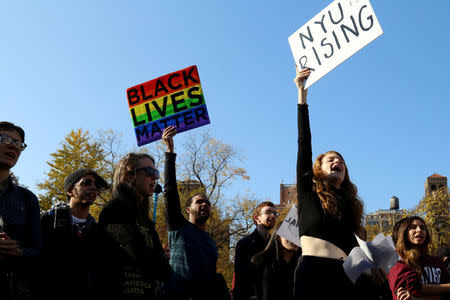Sanctuary city funding cuts less of a concern than Medicaid: Fitch
By Robin Respaut
SAN FRANCISCO (Reuters) - President Donald Trump's executive order last week to cut federal funding to self-proclaimed sanctuary cities would likely not result in an impact to cities' bond ratings, Fitch Ratings reported on Monday.
Instead, a push to convert Medicaid to a block grant would likely result in a more significant effect on state and local government finances, Fitch noted.
Federal funding represents only a small portion of local revenues and most of the funding is restricted to specific programs, such as Temporary Assistance for Needy Families (TANF) and school lunch subsidies, Fitch reported. In general, federal funding does not support cities' general operations.
Sanctuary status is not an official designation. Still, cities across the country have vowed some sort of protection to undocumented residents, including New York, Los Angeles, San Francisco, Boston and Chicago.
Much of the federal funding spent at the municipal level flows to states, counties and school districts, rather than cities.
A Reuters analysis of the nation's ten largest cities that shield illegal immigrants found that the presidential order could strip municipalities of $2.27 billion annually.
"Direct funding is limited," reported Fitch. "Moreover, civil and constitutional challenges appear likely to impede the implementation of the executive order."
Last week's executive order exempted federal dollars used for law enforcement, sparking opponents to say that a judge could strike down that section of the order as unconstitutional.
Fitch noted that President Trump's push to repeal the Affordable Care Act, also known as Obamacare, without a replacement could have a more meaningful impact on state and local government finances.
The Kaiser Family Foundation estimates a repeal of Obamacare and a cap on federal Medicaid spending, such as through a block grant or a per capita cap, could cut Medicaid funding by 41 percent over the next decade. That would likely handicap states' ability to respond to larger enrollments during recessions.
(This story has been refiled to correct link in paragraph 8.)
(Reporting by Robin Respaut; Editing by Andrew Hay)



